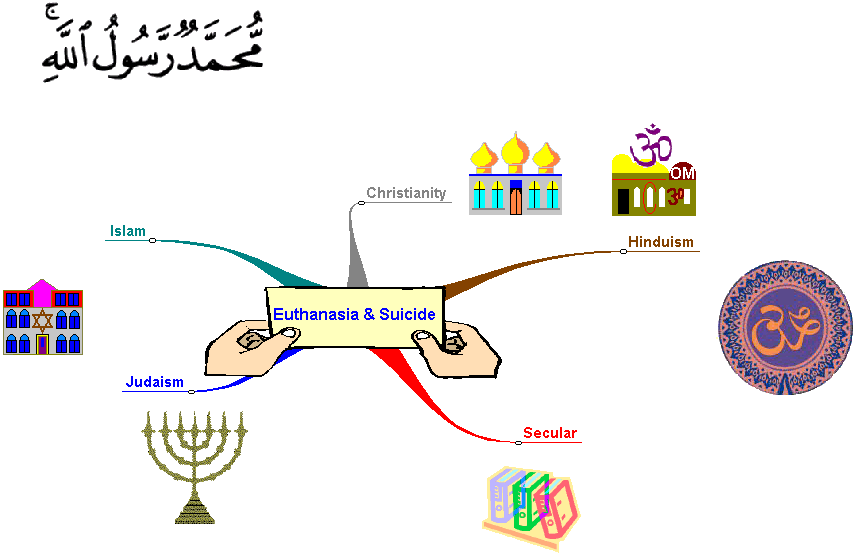
Ahimsa means non-violence, taken from the Jain religion by Gandhi and applied to Hinduism. Suicide is opposed when a form of violence. Suicide as self sacrifice is acceptable. Karma is a transmission of a moral condition and suffering may be the reflection of this to run its course. To practice euthanasia is to pass on bad karma to someone else. However, individuals can renounce their lives for themselves.
God gives life and God takes it away. Euthanasia and suicide both suggest a lack of faith. At one time suicide victims were buried at crossroads so their souls could not settle. Letting someone die by withdrawing medical treatment is probably acceptable: there is a time to die. Roman Catholicism states death from a treatment intending to cure is allowed. Palliative care practised by hospices is preferred to euthanasia.
Allah in his mercy praises perseverance and rejects suicide and euthanasia. People who kill themselves go to hell. Euthanasia should be rejected whatever the pain. Suffering leads to spiritual growth. Painkillers are acceptable.
G-d plans the length of life and this disallows euthanasia. Removing life support is allowed. Suicide is rejected and means no usual burial rites and no burial near other Jews unless it is in the course of fighting enemies or protecting others.
Euthanasia could be carried out only with full consent (the patient may pass this responsibility on), if the life is painful and pointless and the condition is terminal. Hospices are a valid alternative. It is illegal. Suicide is usually tragic and around problems that should be tackled.
Attach some brief notes using these texts to the Mind Map below.

Mind Maps are copyright concept of Tony Buzan and the Buzan Corporation